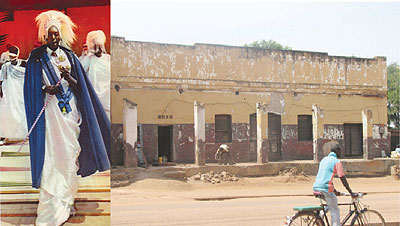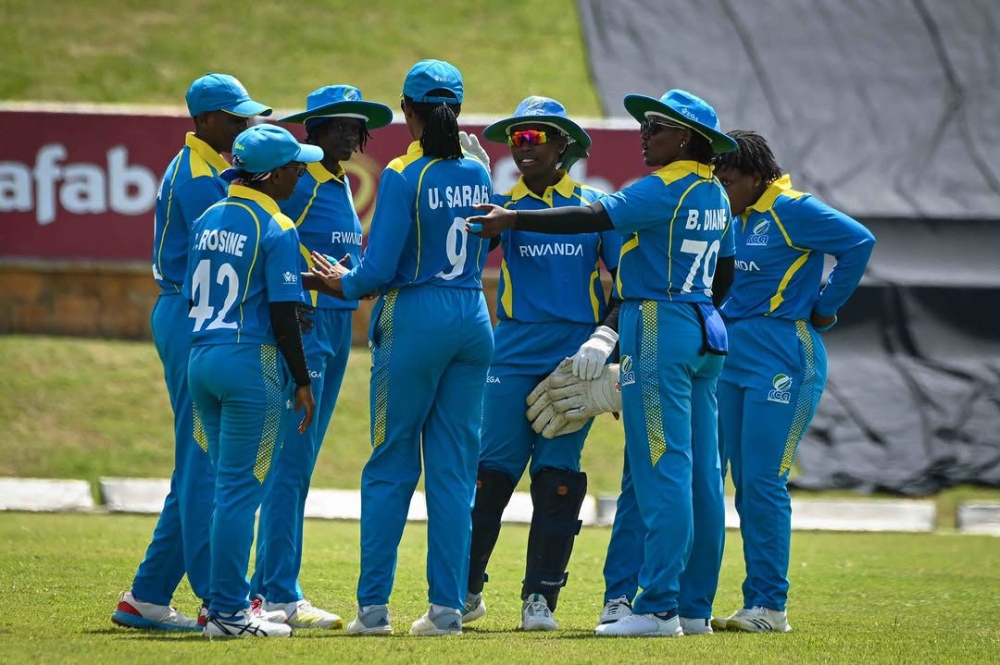In the 1930’s small groups of traders from the East African coast started trickling into Rwanda. These traders, mostly the Omani, were traders dealing in clothes, hoes, machetes, needles and thread, razor blades and other household commodities that locals craved.


In the 1930’s small groups of traders from the East African coast started trickling into Rwanda. These traders, mostly the Omani, were traders dealing in clothes, hoes, machetes, needles and thread, razor blades and other household commodities that locals craved.
After establishing their businesses in Kigali, they started spreading around the country. They moved south to Astrida (now Huye), north to Byumba and east to Rwamagana. These traders decided to settle down, intermarried with the locals and simply refused to return to their desert home. In fact, their descendants still live in Rwamagana. Issa Rugwabiza, an octogenarian born and bred in Rwamagana, remembers their arrival like it was yesterday."During that time we had a chief called Rwabutogo Francisco. He was a wise and good man. During that time many people, not just Arabs, came to stay here. When they (the Arab traders) informed Mwami Rudahigwa that they wanted to settle and establish their business here, he gave them a piece of land,” recalls the old man.Buddala Zakwari, M Sultan and Hassan Bozoyo were the first Arabs to settle in Rwamagana in mid-1935. Today their descendants still run businesses here while some of the first buildings they constructed still stand."When they first came they stayed in grass thatched houses like the rest of us. Later they constructed permanent houses with iron sheets and bricks. Although life was a bit harsh back then, they quickly adopted and learnt Kinyarwanda. The only aspect of their lives that didn’t change was their religion. They were all Muslims and they remained so. Even today their grandsons and daughters are Muslims,” recalls 84-year-old Mzee Karoli Karemera. Facing the challenge of intermarriage and religion"While we called them Abarabu (Arabs) when their sons’ married our daughters, we called their children ibyimane, a degratory term used to describe a person of mixed race. This served them right as they also refered to us as washenzi or maskini (peasants) but besides that, we lived in peace and harmony”, Issa Rugwabiza remembers. At the time the vast majority of Rwamagana residents were Catholics and religious differences caused tensions. Especially when the Arabs converted many people to Islam. The converts were detested, and labeled ‘Abaswahire’ (conmen).Identity clashAlthough the average Arab-Rwandan speaks fluent Kinyarwanda and was born in Rwanda, they still struggle with issues of identity. One of the descendants of the first Arab traders, fourth generation Arab-Rwanda businessman Hamza Fahd lives in Kigali. He complains that although he loves Rwanda and calls it as his motherland, to a majority of Rwandans, he is just Mwarabu (Arab). "We suffer with identity clash because you don’t know where you belong. Neither the Rwandans nor Arabs accept us as one of their own. For example, when I went on a trip to Oman, the local Arabs saw me as foreigner. But back here, some people feel that we are not real Rwandans,” he laments."To be honest, I feel I’m more Rwandan. As for Oman, I have no sense of belonging to the country. Rwanda is my home and will always be,” he adds.Clothes merchant and mother of one Nasra Hamadi expresses the same sentiment. "A part from the colour of my skin, deep inside I’m so Rwandan. I was born here, went to school here and all my friends and village mates are Rwandans. I have an Indangamuntu (national ID) and I have contributed to the Agaciro Fund and know my rights as a citizen,” the 30-year old says with confidence.Keeping their culture aliveFather of two Isa Saleh married a Rwandan. His father was born in Rwamagana and was buried there. In his opinion, although he feels more connected to Rwanda than to Oman, it is important to keep his Arab tradition alive. "This is my country but it’s my duty to keep the Arab traditions my family has preserved. I can never forget where we came from,” confesses the 57-year-old shop attendant.Although many of the Arab-Rwandans today have chosen to leave Rwamagana and stay in Kigali they still feel a deep connection to the town. Almost every Sunday many of them drive from Kigali, and other parts of the country, to visit their families. You find them dressed in traditional Omani attire Buibui and Kanzu’s, a sign of their devotion to their Arab roots .




